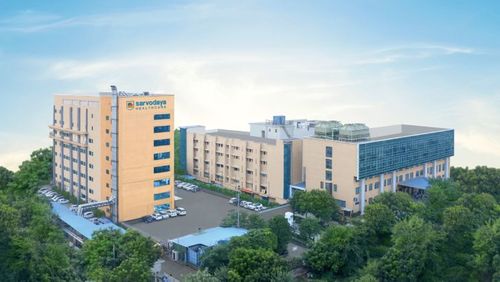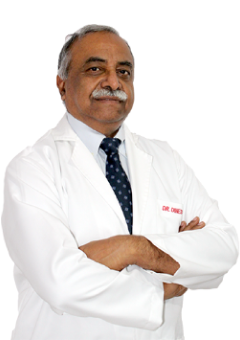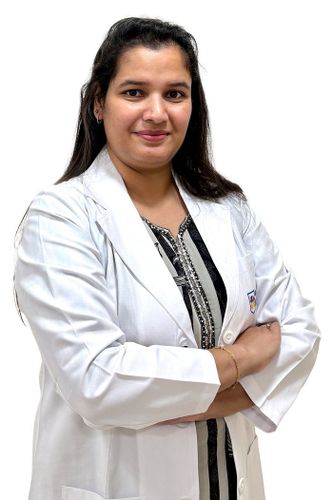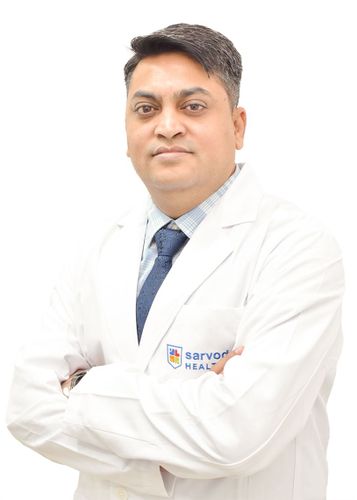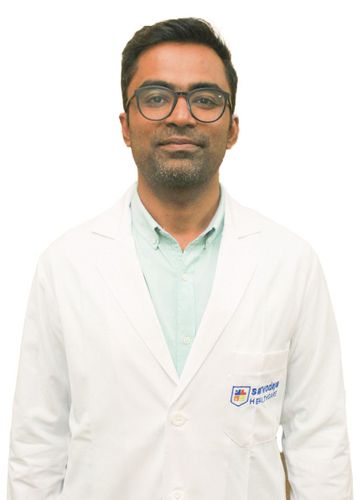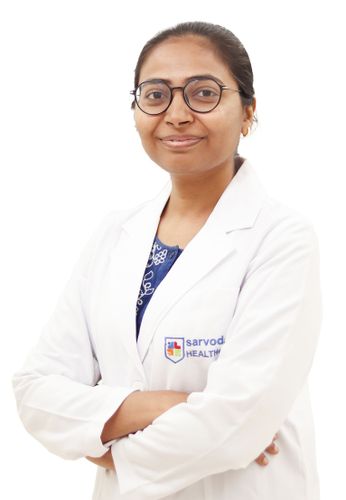Overview
Paediatric cancer refers to cancer occurring in infants, children, and adolescents, affecting areas such as the blood, brain, lymph nodes, and bones. Unlike adult cancers, these often develop from rapidly growing cells and require highly specialised care.
At Sarvodaya Hospital’s Sarvodaya Cancer Institute, our dedicated team of paediatric oncologists and paediatric haematologist provide personalised, compassionate care to young patients.
Using cutting-edge diagnostic tools, advanced chemotherapy, radiation therapy, and bone marrow transplantation, we ensure safe, targeted, and effective treatment. As one of the best oncology hospital in India, our mission is to give every child a cancer-free life filled with hope, healing, and strength.
Types and Symptoms of Paediatric Cancer
Paediatric cancer can affect various parts of a child’s body and requires early detection for successful treatment. The most common paediatric cancers include childhood tumours such as leukaemia (blood cancer), brain and spinal cord tumours, lymphomas, bone cancers, and soft tissue sarcomas. These cancers can occur in children of any age, from infants to young adults.
Common Symptoms of Cancer in Childhood
Symptoms may vary depending on the type and location of cancer but often include:
- Unusual lumps or swellings that do not go away
- Persistent fever or unexplained illness
- Easy bruising or bleeding
- Frequent headaches accompanied by vomiting
- Fatigue, paleness, or unexplained weight loss
- Sudden changes in vision or balance
At Sarvodaya Hospital, our paediatric oncologists use advanced imaging, laboratory tests, and multidisciplinary expertise to ensure early diagnosis and precise management. This holistic approach enhances recovery outcomes and gives every child the best chance at a healthy, cancer-free life.
Diagnostic and Treatment Approach
At Sarvodaya Hospital’s Sarvodaya Cancer Institute, we follow a comprehensive, multidisciplinary approach for paediatric cancer treatment, combining precision diagnostics with advanced therapies to achieve the best possible outcomes.
Diagnosis
Early and accurate diagnosis is crucial. Our paediatric oncologists perform thorough evaluations that may include:
- Complete physical examination and medical history review
- Blood tests and bone marrow biopsy (for leukaemia or lymphoma detection)
- Imaging studies such as MRI, CT, PET-CT, and ultrasound to locate and assess tumours
- Lumbar puncture or tissue biopsy to confirm the type and stage of cancer
Treatment Options
After diagnosis, a personalised treatment plan is designed, which may include:
- Chemotherapy: To target and destroy cancer cells effectively.
- CAR T-Cell Therapy: An advanced form of pediatric cancer treatment where the patient’s immune cells are modified to recognise and attack cancer cells, especially in resistant or relapsed blood cancers like leukaemia.
- Radiation Therapy: For localised control of tumours with minimal damage to surrounding tissues.
- Surgery: To remove solid childhood tumours safely and completely.
- Bone Marrow Transplant (BMT): For children with blood cancers or relapsed disease.
- Targeted and Immunotherapy: New-age treatments that use the child’s immune system to fight cancer cells.
Our multidisciplinary team also provides nutritional guidance, counselling, and physiotherapy, ensuring holistic care throughout treatment and recovery.
Benefits of Paediatric Cancer Treatment
Paediatric oncology care at Sarvodaya Hospital focuses not only on curing the disease but also on ensuring every child’s emotional, physical, and developmental well-being. Early and specialised management of paediatric cancer offers multiple life-changing benefits for young patients and their families.
- Early Diagnosis, Better Outcomes: Prompt identification and intervention greatly improve cure rates and survival outcomes for children with cancer.
- Comprehensive, Child-Centric Care: Each treatment plan is designed to meet the unique physiological and psychological needs of children, ensuring comfort and minimal side effects.
- Advanced and Safe Procedures: State-of-the-art technology and evidence-based protocols reduce complications while improving accuracy and recovery time.
- Multidisciplinary Expertise: Collaboration between oncologists, surgeons, radiologists, nutritionists, and counsellors ensures holistic management of childhood tumours.
- Improved Quality of Life: The goal is not only to treat cancer but to help children regain strength, confidence, and a sense of normalcy in their lives.
Post-Treatment Lifestyle Modifications
Recovery from cancer in childhood goes beyond medical treatment; it focuses on physical, emotional, and social rehabilitation. At Sarvodaya Hospital, our paediatric oncology team ensures continued support even after active therapy ends, helping children lead healthy and fulfilling lives.
- Regular Follow-Ups: Routine check-ups are essential to monitor for recurrence, manage side effects, and track growth and development.
- Balanced Nutrition: A nutrient-rich diet supports immune function, strength, and overall recovery. Our dieticians guide families on child-specific nutrition plans.
- Physical Rehabilitation: Physiotherapy and gentle exercise help rebuild stamina, muscle tone, and flexibility post-treatment.
- Emotional & Psychological Support: Counselling and peer support groups help children and families cope with anxiety, fear, and other emotional challenges.
- Vaccinations and Immunity Monitoring: Certain cancer treatments may affect immunity; vaccinations are scheduled accordingly to prevent infections.
- Return to Routine Activities: With time and gradual progress, children are encouraged to resume school, play, and normal social interactions under medical supervision.


